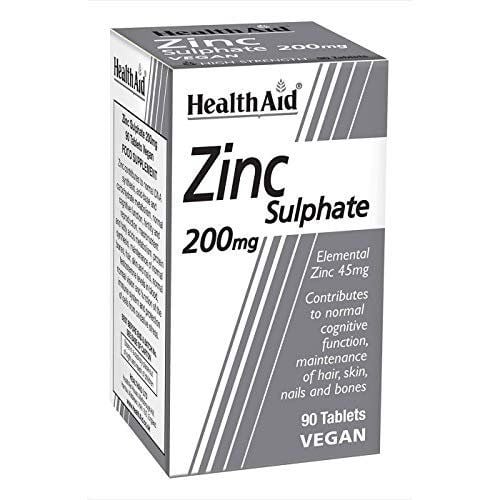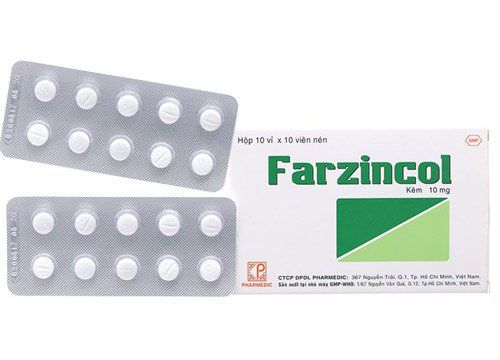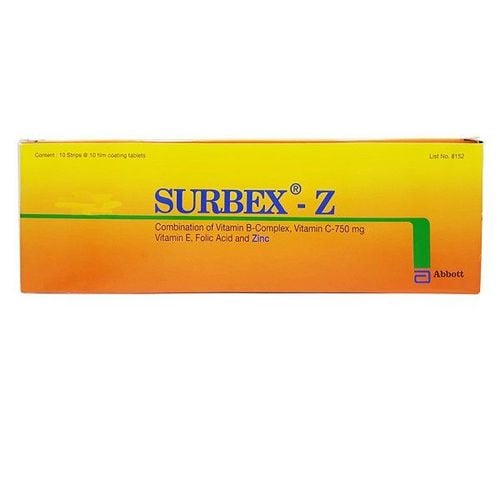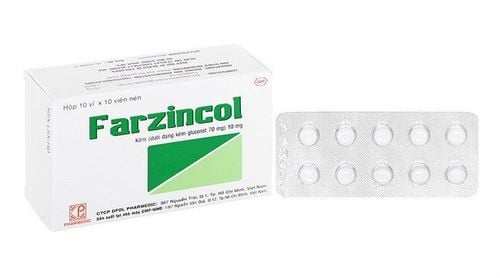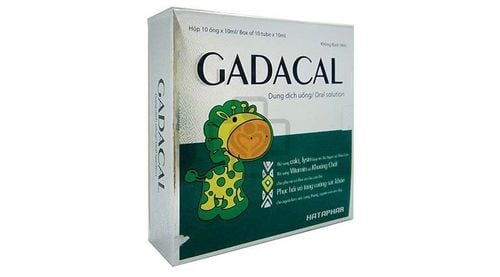This is an automatically translated article.
Zinc is a trace mineral very important for the development of children. With the function of protein synthesis by enzyme mechanism, zinc supplementation for children is a way to promote the development of bones, muscles and brains, to help prevent stunting and growth retardation.
1. Role of trace element zinc for health
Zinc is a trace element that is very important for metabolism, protein metabolism and improving immune health to fight infections, help wounds heal faster. Zinc is an indispensable catalyst of RNA-polymerase and plays a role in DNA replication and growth-promoting protein synthesis. In addition, zinc also has the function of regulating taste, increasing appetite. Therefore, children with zinc deficiency will greatly affect the development and other problems such as:
Children's immune system is weakened, leading to children susceptible to diseases such as respiratory and digestive infections. .. Lack of appetite will lead to anorexia, this situation can cause malnutrition, slow physical development, especially the height of children. Obstructing children's cognitive and memory abilities, affecting language learning or development. Some studies have also shown that zinc deficiency is also a cause of dyslexia in children. Children are prone to hair loss, weak, brittle and brittle nails and toenails, prone to skin diseases such as atopic dermatitis, psoriasis,... Sleep disturbances

Trẻ thiếu kẽm biếng ăn kéo dài có thể gây ra suy dinh dưỡng
2. How to supplement zinc for children
Malnutrition, anorexia, stunting are common problems in young children that one of the causes leading to the above problems is zinc deficiency. According to the National Institute of Nutrition's national nutrition survey, up to 7 out of 10 children under 5 years old are zinc deficient. This is an alarming number and needs prompt intervention. However, the supplementation of zinc for children needs to be done properly, because too much can lead to zinc poisoning, manifested in a weakened immune system, gastrointestinal bleeding, decreased blood cholesterol leads to a number of cardiovascular problems.
When children have signs of zinc deficiency, parents should take the child to a medical facility or nutrition center to be examined and evaluated for zinc deficiency. From there, the doctor will give the dose as well as the time of zinc supplementation for the child depending on the actual condition of the child. For example, in cases of children with diarrhea, in the course of treatment, zinc supplementation for children is essential. Accordingly, children under 6 months of age in the diarrhea treatment regimen are recommended to supplement with 10mg of zinc/day and 20mg of zinc/day for children aged 6-60 months. The duration of zinc supplementation for children is 14 consecutive days.
To avoid zinc deficiency and prevent stunting in children, parents should give children a variety of foods, especially those of animal origin. Because plant-based foods often contain low levels of zinc with low biological value, the body's ability to absorb zinc from this supplement is only in moderation. Some foods contain high levels of zinc such as:
| Thực phẩm | Hàm lượng kẽm (mg) |
| Sò | 13,4 |
| Củ cải | 11 |
| Cùi dừa già | 5 |
| Đậu Hà Lan | 4 |
| Đậu nành | 3,8 |
| Lòng đỏ trứng gà | 3,7 |
| Thịt cừu | 2,9 |
| Bột mì | 2,5 |
| Thịt nạc heo | 2,5 |
| Ổi | 2,4 |
| Nếp | 2,2 |
| Thịt bò | 2,2 |
| Khoai lang | 2 |
| Đậu phộng | 1,9 |
| Gạo | 1,5 |
| Hạt kê | 1,5 |
| Thịt gà ta | 1,5 |
For babies under 6 months of age, breast milk is the best and most easily absorbed source of zinc. In addition, some notes when supplementing with zinc for children include:
After eating for about 30 minutes, take zinc tablets. Do not take zinc and iron tablets at the same time, give them at least 2 hours apart. Do not take calcium and zinc tablets at the same time, take zinc at least 2 hours before taking calcium. For the best absorption of zinc by children, the nutritional menu should include other foods rich in vitamin C and calcium. Reduce foods rich in fiber, copper and iron. In short, zinc deficiency in children can lead to stunting and growth retardation. Adequate zinc supplementation for children is essential. On the market, zinc is used as a micronutrient, used to provide the body with two types of preparations: synthetic zinc and biological zinc. While synthetic zinc is produced industrially from chemical reactions in pharmaceutical factory labs, bioavailable zinc is derived entirely from nature. Accordingly, to produce biological zinc, scientists extract it from organic food sources, similar to how the body absorbs zinc from food. This helps to increase the absorption of zinc into the blood of biological zinc up to 3.7 times compared to synthetic zinc. Therefore, parents need to pay attention to supplement biological sources of zinc from nature so that children can absorb it best.
In addition to zinc, parents also need to supplement their children with other important vitamins and minerals such as lysine, chromium, B vitamins,... errands.
For more nutritional knowledge and child care for each age, parents should regularly visit the website vimec.com and make an appointment with the leading doctors, pediatric and nutrition experts of the National General Hospital. Vinmec when needing advice on children's health.




